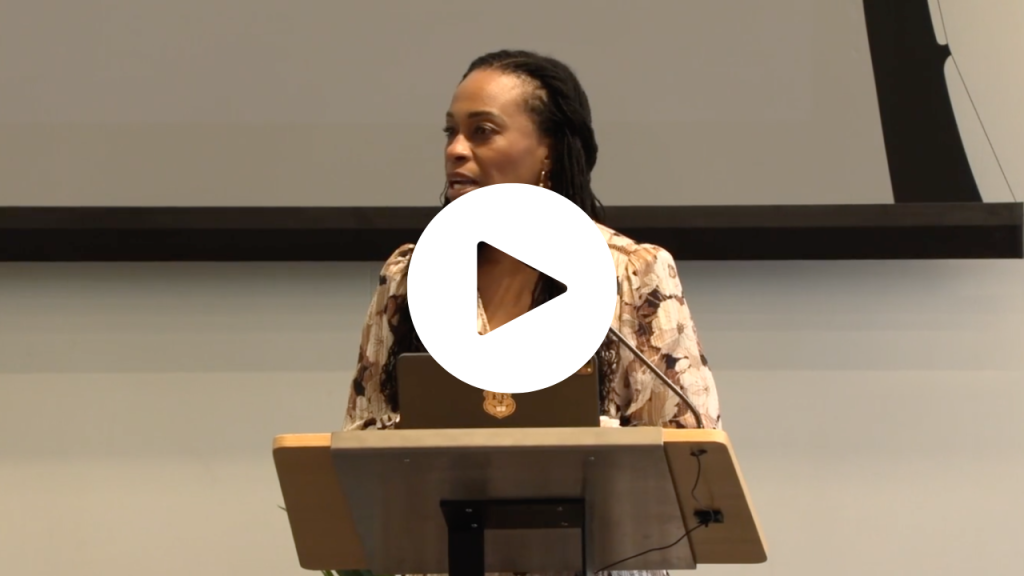Over 300 attendees joined us for three days of inspiring presentations and engaging discussions at the 2024 Emerging Pedagogies Summit, which explored the theme of Designing and Scaling Transformative Learning For All. Through their work with lifelong learners, LILE staff regularly engage with both the challenges and opportunities these emerging pedagogies present. In this series of Summit reflections, they share with you their major takeaways from each session.
The second day of our Emerging Pedagogies Summit started off strong with a keynote from Nisha Botchwey, the Dean and Russell M. and Elizabeth M. Bennett Chair in Excellence for the School of Public Affairs at the University of Minnesota. The focus of her talk was making the connection between education and democracy, and how learning throughout our lives is integral to continuing to be civic participants. You can watch her keynote below:

One of my favorite moments from Botchwey’s talk was when she asked the audience if we’d ever had a doctor tell us to do all the good things in our 20s – such as eating healthy and exercising – but then we can stop because all that good will just carry over into the rest of our lives. There was a resounding ‘no,’ and she then related this to education and how we should continuously be learning throughout our lives. A related quote that she shared was from George Washington Carver, who said “education is the key to unlocking the golden door to freedom.” Altogether, these points highlight the importance of education throughout our lives. I had never heard lifelong learning be compared to health practices before, but it makes perfect sense. And similar to how health practices allow people to live long, well-balanced lives, continuous education allows people to live informed, well-rounded lives.
The other moment from Botchwey’s talk that resonated most with me and the work I do as a STEM Teaching Consultant was when she outlined ways we can activate lifelong learning and innovation to support societal advancement and a strong democracy. Her suggestions included meeting learners where they are (sometimes literally – even at the grocery store), layering your audiences, and speaking the language of the audience. Her recommendations align well with the Universal Design for Learning (UDL) framework and inclusive teaching practices that we advocate for in LILE. Education should be structured in a way that is accessible and attainable to everyone, regardless of identity, ability, finances, and more, ensuring that all learners can unlock that golden door to freedom.

